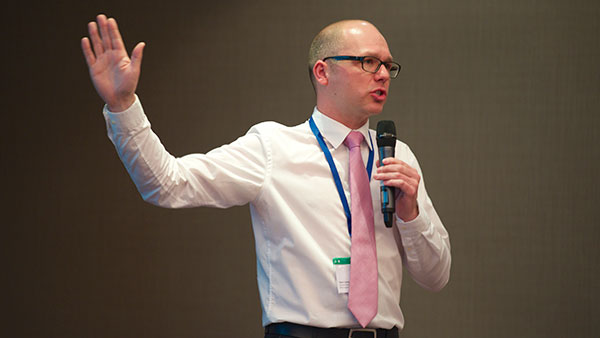
Mark Orchard is a driving force behind Future-Focused Finance (FFF), an initiative launched in February 2014 to foster an improved finance function across the NHS. In practice, that amounts to influencing the working lives of 15,000 finance staff spread across more than 500 organisations.
Orchard says he had three core goals for the first 18 months of the programme: ‘Firstly, to engage with all six national heads of the finance profession within the English NHS; secondly, to get involvement right across the country and at every level; and thirdly, to sustain FFF beyond its first year as an engagement initiative – to become a permanent part of the NHS structure.’
Orchard recalls that the first objective, wining senior backing, seemed the most daunting at the outset. Fortunately, it proved surprisingly straightforward. ‘All six of the national heads of profession were, without exception, quick to come on board and back Future-Focused Finance,’ he says.
All six also helped to shape the FFF’s five-year vision, Orchard adds. ‘As a group they have become the Finance Leadership Council (FLC), meeting once a month to review progress and agree next steps.’
Orchard’s second objective was of a different scale, to try to gain broad recognition and traction. As FFF reached its first anniversary in February, the numbers told an encouraging story. ‘We already had over 170 FDs signed up to the FD declaration,’ he reports. The declaration is a signed pledge to support the goals of FFF through leading by example, teamwork, sharing ideas and volunteering, among other activities.
In addition, more than 2,200 people are registered users of the FFF website, 113 are signed up as ‘value makers’ or ambassadors for the programme, and 130 have become ‘finance educators’.
By its anniversary FFF had also begun to deliver best practice guidance on topics such as value-driven decision-making and team benchmarking. ‘There is so much more, but it is critical that FFF demonstrates impact in all that it does,’ Orchard says.
The third priority, sustaining FFF over the longer term, will require democratising the initiative, Orchard reckons. He adds that the approach has always been to blend top-down and bottom-up approaches, including formal relationships with relevant bodies like the HFMA and the Financial Skills Development Network. In March, a new FFF Foundation held its first meeting – a steering group comprising the FLC, representatives of the 10 FSD regions, the HFMA and six senior responsible officers – individuals charged with driving key areas of FFF activity.
Among other topics, the foundation is pondering how to extend the impact of FFF’s work among clinicians.
‘The journey so far has been a very personal one for me,’ says Orchard. ‘FFF really is a holistic movement that individuals can be more or less involved with to suit their individual needs and wishes. It has a life of its own beyond the control of any individual or group of individuals. This could have been a one-year initiative that was here today and gone tomorrow, but with the establishment of the foundation, I am confident that the FFF journey has only just begun.’
Mark Orchard is a member of the 2015 Public Finance Top 50 Trailblazers











